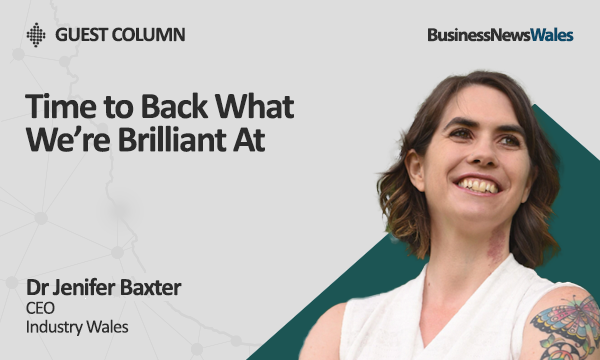 By Patrick Farrell
By Patrick Farrell
Chief Investment Officer
Charles Stanley Wealth Managers.
Last year the FTSE 100 rose 14% and the FTSE 250 added 15%. These are solid gains, but Britain’s major indices are still underperforming those in the US. Patrick Farrell, Charles Stanley Wealth Manager’s new Chief Investment Officer identifies the key things he will be watching this year.
Markets have started the year with a heightened sense of caution – and a significant dose of volatility. Equity valuations are already stretched, given the unprecedented economic support provided by monetary and fiscal policy, which means that both companies and economies will need to continue to perform well to justify current market levels.
This caution has resulted in profit taking in many of big-name favourites that have performed well over the last 12 months, particularly in the technology sector. This profit taking had fuelled volatility at the start of 2021 but tended to settle down quite quickly as investors drew comfort from the view that policy settings were going to remain highly stimulatory, given the ‘Delta’ impact. The question to ask is what can we expect for the remainder of 2022?
To answer this question I will be monitoring four factors – the “four Is” – which are all interconnected and cannot be looked at in isolation. These are:
Infection: The pace of Covid-19 infections needs to be monitored closely, drawing parallels from last year and assessing how developments in treatment will change how governments manage the crisis. This will allow us to forecast its impact on the economy more precisely. Countries such as China that maintain a “zero” target will find it difficult to manage with the more infectious nature of Omicron, which may have flow-on impacts to the already-strained supply chain issues which were evident late last year.
Industrial output: Growth is easing in China and there is the potential for slower growth in the US, particularly as President Biden’s ambitious fiscal plans have been significantly watered down. That said, we are still basking in the post-pandemic recovery in many parts of the world but the lack of further stimulus, the supply chain constraints as well as the scarcity of flexible labour in many economies could hinder industrial output, so the key question here is ‘have we seen the peak in growth?’.
Inflation: A key difference from this time last year is that we are starting from a significantly higher level of inflation, with the widespread view that these price pressures are less transitory than central banks had expected. As a result, central bank governors around the world are being faced with questions around how they plan to control inflation; issues which they haven’t needed to deal with in more than a decade. The speed and extent to which central banks ‘normalise’ policy is crucial to investor sentiment and can lead to a greater possibility of policy errors in the short term.
Interest rates: A very different dynamic relating to fears around inflation now exists. We will need to continually monitor the assertiveness of the central banks, particularly in the US and UK, to assess whether they can control inflation in the medium term. The implications for higher short-term rates is well understood, but the other factors around unwinding the quantitative-easing initiatives can have a significant impact on liquidity in the system – as well as overall refinancing of the large government debt pushing longer-term yields higher.
These four factors are the key things that markets will be focusing on over the course of the year and, typically, they will tend to extrapolate the more extreme scenarios. As a result, we will expect to see higher volatility and lower overall returns in equity markets.
Nevertheless, this year there is likely to be many opportunities to reposition portfolios as markets overreact to these factors, establishing better long-term positions that will perform over the next few years. Nevertheless, it remains a challenging year for policy makers at central banks as they attempt to unwind their pandemic support without upsetting the recovery.
To discuss any of the themes raised in this article, or to find out how Charles Stanley could help you create a more secure financial future, contact a member of our Cardiff team.
Call us on 029 2000 2623, email cardiffbranch@charles-stanley.co.uk or visit www.charles-stanley.co.uk/help-and-contact/people-locations/cardiff
Meet the team
Gail de'Claire, Investment Manager
 “My favourite part of my role is helping clients make sense of complex situations and take control of their finances”
“My favourite part of my role is helping clients make sense of complex situations and take control of their finances”
Gail is a fellow of the Chartered Institute for Securities and Investment. Gail has built up a portfolio of private clients, specialising in discretionary portfolio management including pensions, trusts, offshore bonds and corporates. Keen for clients to gain a better understanding of the industry, she constructed evening courses for the private client entitled – “A beginners guide to the stock market”. Gail is also the proud treasurer for the charity 65 Degrees North.
Gary Power, Investment Manager
 “My favourite part of my role is building long-standing relationships with clients. Our philosophy is to put our client’s first in all decision making and I’m proud of the first-class service we provide to each and every one of them.”
“My favourite part of my role is building long-standing relationships with clients. Our philosophy is to put our client’s first in all decision making and I’m proud of the first-class service we provide to each and every one of them.”
Gary is a Chartered Member of the Securities Institute. A Politics graduate of Cardiff University, Gary co-launched the Cardiff Charles Stanley office.
Gary manages varying sizes of Charitable Funds to specific mandates, risk profiles and income requirements, often within strict ethical screening criteria. He also manages portfolios for the large and growing IFA market in South Wales.
Richard Disley, Investment Manager
 “I look after a diverse group of clients and I particularly enjoy the variety this brings to the job.”
“I look after a diverse group of clients and I particularly enjoy the variety this brings to the job.”
Richard is a member of the Chartered Institute of Securities and Investments Wales Branch committee. A graduate of Oxford University Richard has been working in the financial services industry since 2003. Richard also works closely the IFA market within the region and very much enjoys the team approach the office brings to the marketplace.
The value of investments, and any income derived from them, can fall as well as rise. Investors may get back less than originally invested. This information does not constitute advice or a personal recommendation. Charles Stanley & Co. Limited is authorised and regulated by the Financial Conduct Authority.







